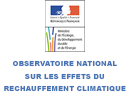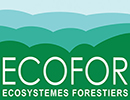Energy Markets’ Long-Term Climate Change Policy and Geostrategy
Energy Markets’ Long-Term Climate Change Policy and Geostrategy
This research project relates to the role and involvement of countries that own and/or manage a large proportion of fossil fuel resources, in particular OPEC and FSU (1.14) in international climate negotiations.
Research topics dealt with
- The influence of countries producing and exporting fossil fuels in the post-Kyoto negotiation process.
- Structural changes in the oil and gas markets and their significance in the international effort to combat climate change.
- The strategic actions of oil- and gas-producing countries in the context of post-Kyoto negotiations, looking in particular at potential strategies to ‘counteract’ the effects of climate change policy on the energy markets.
- Impact of the penetration of new technologies (carbon capture, bio-fuels, new types of nuclear reactor, etc) or new energy carriers (hydrogen, fuel cells, etc) on these strategies.
- Identifying incentive mechanisms which might induce producing and exporting countries to affiliate themselves with global emissions reduction policies, or at least not to obstruct them (price guarantees, links with development or R&D).
Anticipated scientific outcomes/deliverables:
- A worldwide, multi-regional, multi-sectoral GEMINI-E3 or adapted GEMINI-E3 computable general equilibrium model, which will help assess the economic impacts of GHG emission restrictions, expressed as loss of budget surplus, on the major countries producing and exporting fossil fuels. This tool, which can calculate regional economic costs under different hypothetical frameworks, will help especially to construct the utility functions for the leaders and the competitive fringe in the energy markets.
- A dynamic interplay method of representing 1) competition on the energy markets, with strategic behaviours and global environmental constraints and 2) incentivising mechanisms to promote participation by fossil fuel producing and exporting countries in post-Kyoto agreements.
Practical contributions and concrete proposals
Formulating concrete proposals aimed at the international negotiation community will be one of the main objectives of this research. In a similar way to the American think-tanks, we intend to identify ways in which the implications of our scientific findings can be publicised among political negotiators and decision-makers. In particular, we will attempt to provide a concrete contribution to the discussion on ways in which to induce the major fossil fuel exporting countries to affiliate themselves either actively or at least passively with the international effort to combat climate change.
Furthermore, all relevant findings of our research will be used in the post-Kyoto context of developing architectures and formulating targets. In pursuing this aim, we will call on the IFRI’s capabilities in terms of disseminating information and organising specialist meetings and on its very wide contact network in Europe and the United States among circles involved with the discussion and implementation of foreign policy.
| Coordinators |
Pierre NOEL, IFRI |
| Partnership |
INRA – LEERNA |
| Funding |
MEDD
|
| Budget |
123 000€ (including tax)
|




